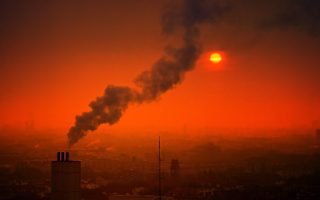
Though scientists have known for many decades that air pollution has a negative effect on the respiratory system, a more complete picture of how low-quality air effects the body has emerged in recent years. As it turns out, many conditions, from cancer to diabetes, are to some degree linked to high levels of air pollution. What hasn’t been as well-researched, though, is the effect that pollution can have on the brain. Now, new research is shedding light on just how negatively air pollution can impact cognitive development.
How Does Air Pollution Affect the Brain?
High levels of air pollution are known to cause inflammation in a variety of human tissues. This inflammation, in turn, is what causes many of the diseases that are associated with unclean air. New studies in mice have found that the same kind of inflammation can occur in the brain. In fact, exposure of mice to high levels of air pollution has been shown to result in inflammation that can last for several months. Though there isn’t yet definitive evidence that the effect is the same in humans, it is very likely that it could.
This effect of air pollution on the brain may also account for the correlation between living in highly-polluted areas and poorer cognitive performance. People exposed to too much pollution are known to exhibit poorer memory and lower overall intelligence scores than those who have not been exposed. Some scientists even hypothesize that exposure to air pollution could be a contributing factor to developmental disorders, though there isn’t sufficient evidence to directly support that conclusion as of now.
What Can You Do?
Even though the research isn’t yet definitive, it’s clear that there is at least a very good chance that air pollution can affect cognition, in addition to raising the risks for many chronic diseases. With that said, it’s important for everyone who might be affected by air pollution to do whatever they can to protect themselves from its negative effects. One of the best things you can do is to start or join initiatives in your area that focus on limiting pollution and cleaning up the air. Often, colleges and universities will have environmental cleanup projects, as will local non-profit organizations. By participating in these initiatives, you can do your part to make the air in your city cleaner and less harmful to yourself and your neighbors.
In addition to working for change, it’s also important to protect yourself from the air pollution that exists at the moment. The best way to do this is to use a high-quality combination HEPA and carbon air purifier in your home. One of our top recommendations is the Field Controls TRIO, which can remove both VOCs and small particulate matter.